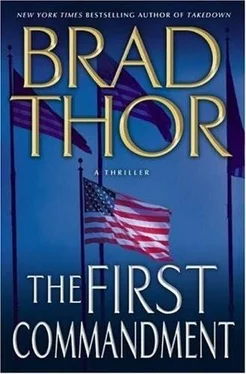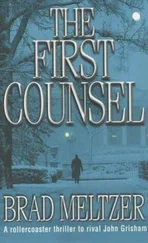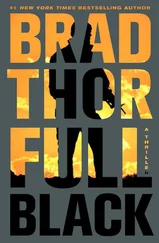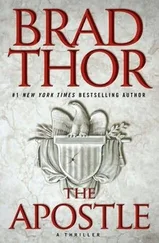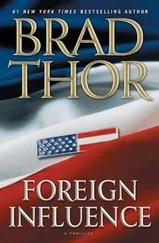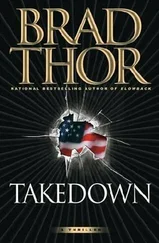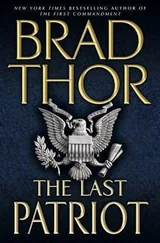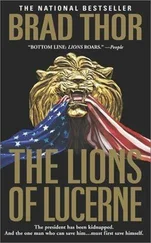“I’m sorry, Mr. President, I’m not. Actually, we’ve got a bit of a problem.”
“That seems to be par for the course today. What is it?”
“Are you alone?”
“No, why?”
“This has to do with Operation Blackboard.”
Blackboard was a codename the president had hoped never to hear uttered again, but ever since Tracy Hastings’s shooting it seemed to be all he and the DCI talked about.
Placing the receiver against his chest, Rutledge asked his chief of staff to clear the room and close the door behind him.
Once everyone was out, the president said, “Now I’m alone.”
The CIA director got right to the point. “Mr. President, you’ll recall that one of the Gitmo detainees exchanged in Operation Blackboard was a former Mexican Special Forces soldier turned Muslim convert who was helping to train Al Qaeda operatives. His name was Ronaldo Palmera.”
Though the president normally remembered only the most significant names in the war on terror, the names of the five men released from Guantanamo had all stayed with him. At the time, it was because he harbored a fear in the deepest recesses of his soul that the names would one day come back to haunt him. Suddenly it looked as if that fear was about to become reality. “What about him?”
“Palmera was struck and killed by a taxi cab in Querétaro, Mexico.”
“Good.”
“His wrists were Flexicuffed behind his back when it happened,” replied Vaile.
“Not so good, but from what I recall the man had a lot of enemies. He was an enforcer for some of the big drug cartels down there, correct?”
“Yes, Mr. President, but that’s not the problem. Apparently, Palmera jumped through a window and then ran out into the street. Three men, three white men, ” Vaile added for emphasis, “were seen coming out of Palmera’s residence immediately afterward. One of them removed Palmera’s boots and then they disappeared.”
“ Removed his boots? ”
“Yes, sir. You’ll recall that Palmera was rumored to have made a pair of boots from the tongues of the Special Forces and CIA agents he killed in Afghanistan. When he was captured, we looked but never found the boots. He obviously had them stashed somewhere and picked them up after he was released from Guantanamo.”
“Obviously,” replied the president, who could feel an intense headache coming on. He looked down and saw the blinking light of the line where Harvath was sitting on hold. “So according to your information, three gringos were responsible for Palmera exiting his home, through a window, with his arms Flexicuffed behind his back, at which point he ran into traffic and was run down by a taxi cab.”
“Yes, Mr. President.”
“Then one of these men removed Palmera’s boots and the trio fled the scene?”
“Exactly,” replied Vaile. “We think they may have come in via Querétaro’s international airport, and we’re working on getting hold of the aviation logs as well as customs information and security tape footage now. I don’t need to tell you what this is starting to look like.”
“I know exactly what it looks like. It looks like we broke our word. None of those men from Gitmo were supposed to be touched. Ever.”
“In all fairness, Mr. President, if we’d been able to track them, we might have been able to prevent this from happening.”
“I’m not going to rehash that, Jim,” replied the president, growing angrier. “Secretary Hilliman and the folks at DOD had every reason to believe the isotope tracking system would work. We still don’t know how the terrorists found out about it.”
“Well, they did. The blood transfusions probably began the minute that plane left Cuban airspace.”
They’d had this argument ad nauseam. The DOD blamed the CIA for losing the five terrorists released from Gitmo, and the CIA blamed the DOD for betting the farm on the isotope tracking system. Each was sure the other was where the leak about the ultrasecret tracking system had come from. The whole plan had been based upon being able to track the five men, and it had fallen apart. Now, it was coming back to haunt them all.
Switching gears, the president said, “How come I haven’t had any updates on your progress locating the terrorist stalking Harvath?”
“Because unfortunately there hasn’t been much progress. Not yet, at least.”
“Damn it, Jim. How the hell is that possible? You’ve got every available resource at your disposal. You told me the people you put on this were seasoned counterterrorism operatives. You promised me, and I promised Harvath, that this would be taken care of.”
“And it will be, Mr. President. We’re doing everything we can to hunt this guy down. We’ll get him, I assure you.”
Vaile was sounding like a broken record, but Rutledge let it go for the moment. He had other problems to deal with. “So how do we fix this problem in Mexico?”
“It’s going to take a lot of work. We’ll have to create a pretty damn convincing deception and even then I don’t know if it will fly. We were warned what would happen if anything befell any one of the five.”
The president didn’t need to be reminded of the penalty terms of their agreement. He’d been forced to make a deal with the devil, and he’d agonized over violating the nation’s first commandment in the war on terror. “Let’s just get to the bottom line here.”
“For starters,” replied the DCI, “we need to figure out who was chasing Palmera.”
The president once more looked down at the flashing light on his phone. “And then?”
“Then we make sure that person can in no way, shape, or form be associated with you, this administration, or the United States government,” replied Vaile.
“And then?”
“Then we pray to God the people we had to deal with six months ago don’t see right through us and make good on their threats.”
SARGASSO INTELLIGENCE PROGRAM
ELK MOUNTAIN RESORT
MONTROSE, COLORADO
Harvath hung up the phone in utter disbelief. He had no idea who the president had spoken to while he’d had him on hold, but when Jack Rutledge got back on the line he was beyond angry, and their conversation went from bad to worse.
The president told him point-blank to back off the investigation, and when Harvath refused, the president said he had no choice but to order his arrest on grounds of treason.
Treason? Harvath was shocked. How could trying to save the lives of people who were important to him, people who were American citizens, be an act of treason?
The president gave him twenty-four hours to get back to D. C. and turn himself in. “And if I don’t?” Harvath had asked.
“Then I cannot and will not be responsible for your well-being,” Rutledge had answered.
And there it was. The cards were all on the table and Harvath now knew exactly where he stood.
He ended his conversation with the president by saying, “I guess we’ve each got to do what we feel is right,” and hung up the phone.
It was a moment Harvath could never have foreseen. The president of the United States had actually threatened his life. It was incomprehensible-just as incomprehensible as being labeled a traitor. For a moment, Harvath wondered if this was all some sort of bad dream, but the stark reality of the situation was too much to be anything but real.
His standing was now clear. In spite of years of selfless service to his country, he was disposable. His expertise, his track record, even his loyalty, were nothing more than items on a balance sheet to be weighed and disposed of at will.
Though Harvath wanted to give the president the benefit of the doubt, he could not bring himself to; not now. Not after having been taken into the president’s confidence so many times in the past. Never once had Harvath betrayed that confidence. His loyalty and his discretion were above reproach, but those apparently mattered little if at all anymore to Jack Rutledge.
Читать дальше
